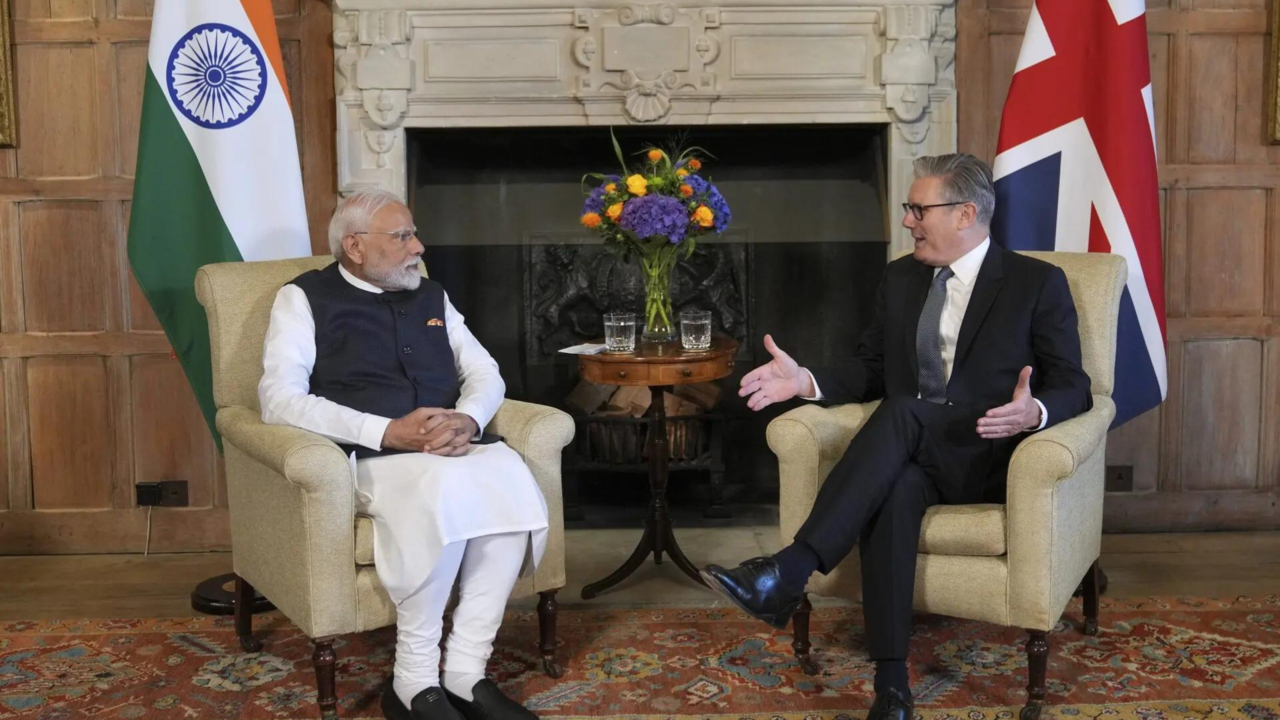Prime Minister Narendra Modi with his British counterpart Keir Starmer
Photo : AP
New Delhi: Eighteen years after India and the UK started discussions for a Bilateral Trade and Investment Agreement, India and the UK on Thursday signed a landmark trade deal to boost two-way trade by eliminating tariffs on cars, textiles, whisky and range of other products as Prime Minister Narendra Modi and his UK counterpart Keir Starmer firmed up the ‘Vision 2035’ strategy to expand ties in areas of defence, technology, clean energy and migration. The trade pact is Britain’s biggest such deal since its exit from the European Union.
The Comprehensive Economic and Trade Agreement (CETA) seeks to enhance bilateral trade by around USD 34 billion annually besides ensuring better market access. The trade deal came amid growing global concern over US President Donald Trump’s tariff tussle.
The groundwork for the talks began 18 years ago, when Tony Blair was the UK PM.
However, the talks for a trade deal with the UK actually gained momentum after UK’s exit from Brexit. At the time, India also opted out of China-led Regional Comprehensive Economic Partnership, and stepped up engagement with developed countries, including the UK, for new markets for Indian goods and services.
The UK deal appeared smooth with Boris Johnson setting a Diwali deadline. But less than three months later, he stepped down, putting the deal into back burner as UK grappled with uncertainty.
The trade talks also failed to move further during Rishi Sunak tenure as his cabinet publicly expressed concerns over visa concessions.
Finally, it was Keir Starmer who decided to go ahead with the deal. It took three years and 14 rounds of negotiations for the deal to be finalised, hours before the start of Operation Sindoor, India’s military response to April 22 terror attack in Jammu and Kashmir’s Pahalgam, Times of India reported.
“This agreement is more than just an economic partnership; it is also a blueprint for shared prosperity,” PM Modi said in his media statement.
“On the one hand, it paves the way for enhanced market access in the UK for Indian textiles, footwear, gems and jewellery, seafood, and engineering goods. It will also unlock new opportunities for India’s agricultural produce and processed food industry. Above all, this agreement will be especially beneficial for India’s youth, farmers, fishermen, and the MSME sector,” he said.
“On the other hand, products made in the UK, such as medical devices and aerospace parts, will be available to the people and industry of India at accessible and affordable rates,” he added.
Starmer said the trade deal will India is a “major win for Britain”. “It will create thousands of British jobs across the UK, unlock new opportunities for businesses and drive growth in every corner of the country,” he said.
The two sides also unveiled the “Vision 2035” partnership that reaffirms their shared commitment to “unlocking” the full potential of a “revitalised” partnership.


